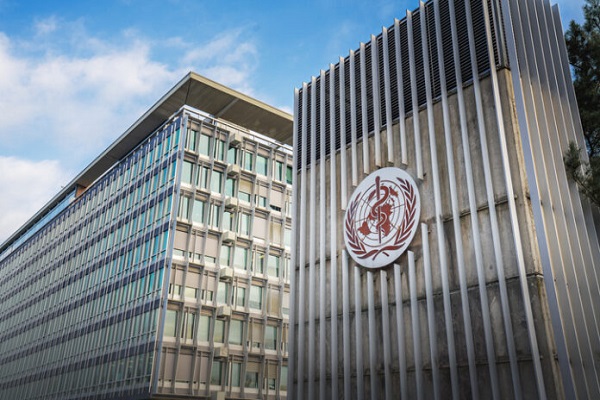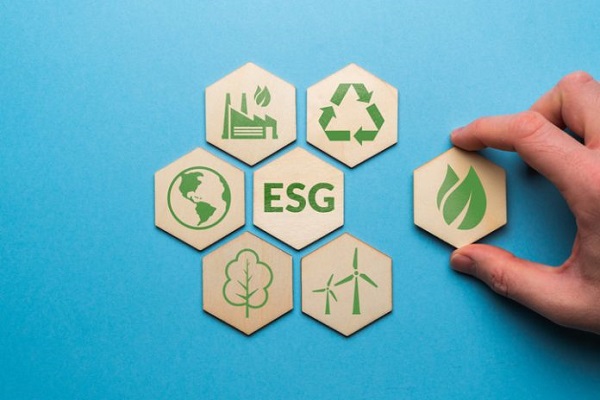Great Reset
UN secretary-general calls for ‘global governance’ in ‘new multipolar order’ at 2024 Davos summit

U.N. Secretary-General Antonio Guterres
From LifeSiteNews
Antonio Guterres expressed confidence in building a new world order with ‘new opportunities for leadership.’
The Secretary-General of the United Nations (U.N.) called for “global governance” in “a new multipolar global order” at the World Economic Forum (WEF) meeting.
BREAKING – UN Secretary-General Antonio Guterres calls for “global governance” in “a new multipolar global order”
“I am confident we can build a new multipolar global order”
He called for “multilateralism” that requires “effective mechanisms of global governance”#WEF24 pic.twitter.com/rjmWxhYrop
— Andreas Wailzer (@Andreas_Wailzer) January 17, 2024
During his special address, U.N. Secretary-General Antonio Guterres said he is “confident we can build a new multipolar global order with new opportunities for leadership and with balance and justice in its national relations.”
“But multipolarity creates complexity,” he continued. “Left to itself, it could deepen frontlines between north and south, east and west, developed and developing economies, within the G20 and between the G20 and everyone else.”
“And the only way to manage this complexity and avoid a slide into chaos is through a reformed, inclusive networked multilateralism.”
“This requires strong multilateral institutions and frameworks and effective mechanisms of global governance.”
“Without them, further fragmentation is inevitable, and the consequences are clear” Guterres stated.
“We see an epidemic of impunity around the world. We see some countries doing whatever it takes to further their own interests at all costs, from Russia’s invasion of Ukraine to Sudan and, more recently, Gaza.”
Guterres lamented that “parties to the conflict are ignoring international law, trampling on the Geneva Conventions, and even violating the United Nations Charter.”
Addressing the role of governments and private companies in the regulation of Artificial Intelligence, he called for a “governance model that is networked and adaptive” where the U.N. “plays a central, convening role.”
“The private sector is in the lead on AI expertise and resources, and you need the private sector’s full engagement in our multi-stakeholder effort to develop a governance model that is networked and adaptive,” he said.
“I believe the U.N. should play a central, convening role. The advisory board I created on Artificial Intelligence has already made preliminary recommendations on AI governance that adapt the benefits of this incredible new technology while mitigating its risks.”
Great Reset
Biden Administration Eager to Sign WHO Pandemic Treaty

From Heartland Daily News
By Bonner Russell Cohen, Ph.D.
The Biden administration signaled its support for the World Health Organization’s (WHO) new pandemic treaty expected to be finalized at its World Health Assembly in Geneva, Switzerland, the final week of May.
Pamela Hamamoto, the State Department official representing the United States at the meeting, stated that “America is committed to signing the treaty that will ‘build a stronger global health structure,’” wrote John Tierney, a senior fellow at the Manhattan Institute and a contributing editor, in the City Journal.
Adoption of a legally binding pact governing how countries around the world are to respond to future outbreaks like the recent COVID-19 pandemic has been the goal of WHO-directed negotiations since 2021. The WHO, a United Nations-sponsored organization, came under sharp criticism for its handling of the coronavirus.
On May 8, attorneys general from 22 states sent President Biden a letter saying they oppose the accords which will turn the WHO into the “world’s governor of public health.” The letter says giving the WHO such authority violates the U.S. Constitution, and could lead to censorship of dissenting opinions, undermine Constitutional freedoms, and give the WHO power to declare any “emergency” besides health including climate change, gun violence, and immigration.
Missteps on COVID-19
In a post on Twitter (now X) on January 14, 2020, the WHO stated: “Preliminary investigations conducted by the Chinese authorities have found no clear evidence of human-to-human transmission of the novel #coronavirus (2019-nCoV) identified in #Wuhan, #China.”
Two weeks later, on January 30, 2020, WHO’s Emergency Committee issued a Public Health Emergency of International Concern (PHEIC), stating, “The Committee emphasized that the declaration of a PHEIC should be seen in the spirit of support and appreciation of China, its people, and the actions China has taken on the front lines of this outbreak, with transparency and, it is to be hoped, success.”
The WHO’s initial investigation into the origins of COVID-19 concluded it was improbable that the virus resulted from experiments at the Wuhan Institute of Virology, though it later acknowledged that it could have come from a lab leak at Wuhan. The WHO’s investigation, which was thwarted by Chinese officials, ultimately reached no conclusion. President Trump announced the United States’ withdrawal from the WHO, a decision reversed by President Joe Biden on January 20, 2021.
More Smoke and Mirrors
Further undermining the WHO’s credibility in setting policies on managing a future pandemic, the group decided to include Peter Daszak, president of the New York-based EcoHealth Alliance, in its initial investigation into the origins of COVID-19.
Daszak and EcoHealth Alliance prominently featured in an investigation by the U.S. House Select Subcommittee on the Coronavirus Pandemic into the government’s funding and lack of oversight of gain-of-function research at the Wuhan lab, for which EcoHealth received grants from the National Institute of Allergy and Infectious Diseases and the National Institutes of Health.
In an interim report released on May 1, 2024, the subcommittee said there is “significant evidence that Daszak violated the terms of the NIH grant awarded to EcoHealth. Given Dr. Daszak’s apparent contempt for the American people and disregard for legal reporting requirements, the Select Subcommittee recommends the formal debarment of and a criminal investigation into EcoHealth and its President.”
After the release of the report, U.S. Rep. Tom Emmer (R-MN) told the Washington Examiner, “The World Health Organization covered up the Chinese Communist Party’s role in developing and spreading COVID-19 and has since failed to hold them accountable for the global pandemic that killed millions, upended our daily lives, and destroyed thousands of small businesses.”
Public Fed Up
The WHO’s shaky record on COVID, including its close ties to China and Peter Daszak, have taken a toll on the public’s willingness to accept its leadership in any future pandemics.
A poll conducted by McLaughlin & Associates for the Center for Security Policy, released on April 17, found that 54.6 percent of likely voters oppose tying the United States to a WHO pandemic treaty, and just 29.0 percent favor such a move.
Agreements Bypass Congress
While providing few details, at the World Economic Forum in Davos, Switzerland in January, WHO Director General Tedros Ghebreyesus said, “The pandemic agreement can bring all the experience, all the challenges we have faced and all the solutions into one. That agreement could help us prepare for the future in a better way.”
The “treaty” the Biden administration is eager to sign will likely be an executive agreement, like the 2015 Paris Climate Agreement, which was not presented to the U.S. Senate for ratification but contained “commitments” President Barack Obama pledged to honor.
Also in the works in Geneva are amendments to International Health Regulations, which Congress would not approve or disapprove.COVID
WHO’s Power Grab
Sen. Ron Johnson (R-WS), sent a letter to President Biden signed by all 49 Republican senators, expressing their concern about the powers that could be handed to WHO, on May 2.
“Some of the over 300 proposals for amendments made by member states would substantially increase the WHO’s emergency powers and constitute intolerable infringements upon U.S. sovereignty,” the letter states.
Craig Rucker, president of the Committee for a Constructive Tomorrow (CFACT), who has attended UN-sponsored conferences around the world for over 30 years, says the WHO is a destructive force.
“WHO’s performance during COVID-19 was a lethal combination of incompetence and dishonesty,” said Rucker. “The organization failed to protect public health and went to extraordinary lengths to cover up China’s role in fostering gain-of-function research at the Wuhan lab. Ratification of any WHO pandemic treaty would be nothing short of a travesty.”
Bonner Russell Cohen, Ph.D. ([email protected]) is a senior fellow at the National Center for Public Policy Research.
Business
ESG Puppeteers

From Heartland Daily News
By Paul Mueller
The Environmental, Social, and Governance (ESG) framework allows a small group of corporate executives, financiers, government officials, and other elites, the ESG “puppeteers,” to force everyone to serve their interests. The policies they want to impose on society — renewable energy mandates, DEI programs, restricting emissions, or costly regulatory and compliance disclosures — increase everyone’s cost of living. But the puppeteers do not worry about that since they stand to gain financially from the “climate transition.”
Consider Mark Carney. After a successful career on Wall Street, he was a governor at two different central banks. Now he serves as the UN Special Envoy on Climate Action and Finance for the United Nations, which means it is his job to persuade, cajole, or bully large financial institutions to sign onto the net-zero agenda.
But Carney also has a position at one of the biggest investment firms pushing the energy transition agenda: Brookfield Asset Management. He has little reason to be concerned about the unintended consequences of his climate agenda, such as higher energy and food prices. Nor will he feel the burden his agenda imposes on hundreds of millions of people around the world.
And he is certainly not the only one. Al Gore, John Kerry, Klaus Schwab, Larry Fink, and thousands of other leaders on ESG and climate activism will weather higher prices just fine. There would be little to object to if these folks merely invested their own resources, and the resources of voluntary investors, in their climate agenda projects. But instead, they use other people’s resources, usually without their knowledge or consent, to advance their personal goals.
Even worse, they regularly use government coercion to push their agenda, which — incidentally? — redounds to their economic benefit. Brookfield Asset Management, where Mark Carney runs his own $5 billion climate fund, invests in renewable energy and climate transition projects, the demand for which is largely driven by government mandates.
For example, the National Conference of State Legislatures has long advocated “Renewable Portfolio Standards” that require state utilities to generate a certain percentage of electricity from renewable sources. The Clean Energy States Alliance tracks which states have committed to moving to 100 percent renewable energy, currently 23 states, the District of Columbia, and Puerto Rico. And then there are thousands of “State Incentives for Renewables and Efficiency.”
Behemoth hedge fund and asset manager BlackRock announced that it is acquiring a large infrastructure company, as a chance to participate in climate transition and benefit its clients financially. BlackRock leadership expects government-fueled demand for their projects, and billions of taxpayer dollars to fund the infrastructure necessary for the “climate transition.”
CEO Larry Fink has admitted, “We believe the expansion of both physical and digital infrastructure will continue to accelerate, as governments prioritize self-sufficiency and security through increased domestic industrial capacity, energy independence, and onshoring or near-shoring of critical sectors. Policymakers are only just beginning to implement once-in-a-generation financial incentives for new infrastructure technologies and projects.” [Emphasis added.]
Carney, Fink, and other climate financiers are not capitalists. They are corporatists who think the government should direct private industry. They want to work with government officials to benefit themselves and hamstring their competition. Capitalists engage in private voluntary association and exchange. They compete with other capitalists in the marketplace for consumer dollars. Success or failure falls squarely on their shoulders and the shoulders of their investors. They are subject to the desires of consumers and are rewarded for making their customers’ lives better.
Corporatists, on the other hand, are like puppeteers. Their donations influence government officials, and, in return, their funding comes out of coerced tax dollars, not voluntary exchange. Their success arises not from improving customers’ lives, but from manipulating the system. They put on a show of creating value rather than really creating value for people. In corporatism, the “public” goals of corporations matter more than the wellbeing of citizens.
But the corporatist ESG advocates are facing serious backlash too. The Texas Permanent School Fund withdrew $8.5 billion from Blackrock last week. They join almost a dozen state pensions that have withdrawn money from Blackrock management over the past few years. And last week Alabama passed legislation defunding public DEI programs. They follow in the footsteps of Florida, Texas, North Carolina, Utah, Tennessee, and others.
State attorneys general have been applying significant pressure on companies that signed on to the “net zero” pledges championed by Carney, Fink, and other ESG advocates. JPMorgan and State Street both withdrew from Climate Action 100+ in February. Major insurance companies started withdrawing from the Net-Zero Insurance Alliance in 2023.
Still, most Americans either don’t know much about ESG and its potential negative consequences on their lives or, worse, actually favour letting ESG distort the market. This must change. It’s time the ESG puppeteers found out that the “puppets” have ideas, goals, and plans of their own. Investors, taxpayers, and voters should not be manipulated and used to climate activists’ ends.
They must keep pulling back on the strings or, better yet, cut them altogether.
Paul Mueller is a Senior Research Fellow at the American Institute for Economic Research. He received his PhD in economics from George Mason University. Previously, Dr. Mueller taught at The King’s College in New York City.
Originally posted at the American Institute for Economic Research, reposted with permission.
-

 Brownstone Institute23 hours ago
Brownstone Institute23 hours agoMedical Elites’ Disgrace Over Ivermectin
-

 National21 hours ago
National21 hours agoDespite claims of 215 ‘unmarked graves,’ no bodies have been found at Canadian residential school
-

 Brownstone Institute16 hours ago
Brownstone Institute16 hours agoThe WHO’s Proposed Pandemic Agreements Worsen Public Health
-

 COVID-194 hours ago
COVID-194 hours agoJapan’s most senior cancer doctor: COVID shots are ‘essentially murder’
-

 John Stossel10 hours ago
John Stossel10 hours agoProtecting Free Speech: The Early Warning Signs From Around The World
-

 COVID-1913 hours ago
COVID-1913 hours agoTrudeau’s public health agency recommends another experimental COVID booster
-

 Health14 hours ago
Health14 hours agoTHE WPATH TAPES: Behind-The-Scenes Recordings Reveal What Top Gender Doctors Really Think About Sex Change Procedures
-

 COVID-1917 hours ago
COVID-1917 hours agoThe New York Times Admits Injuries from COVID-19 Shots

